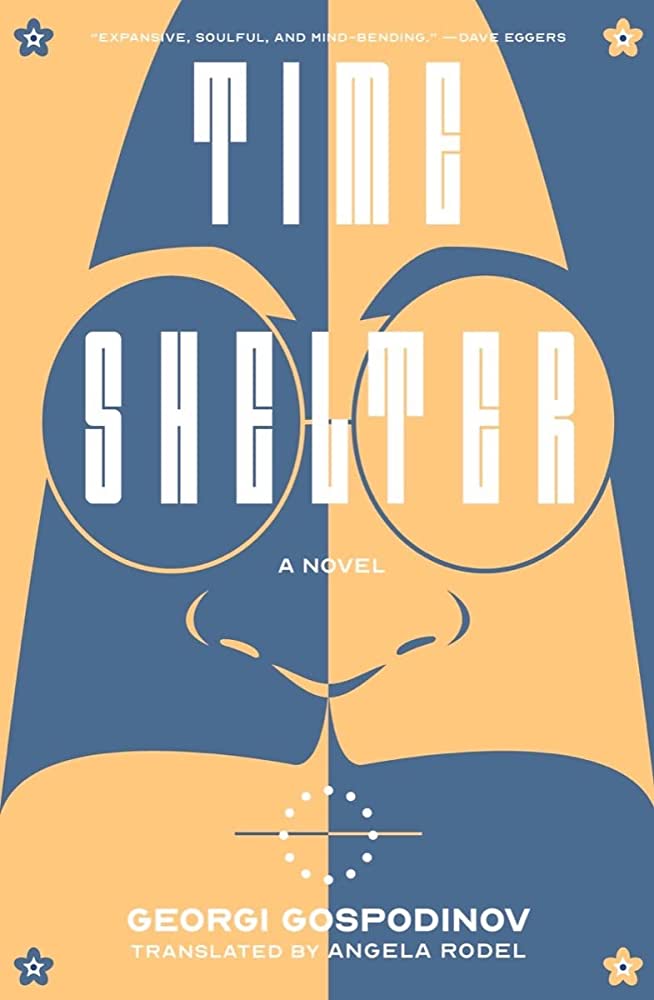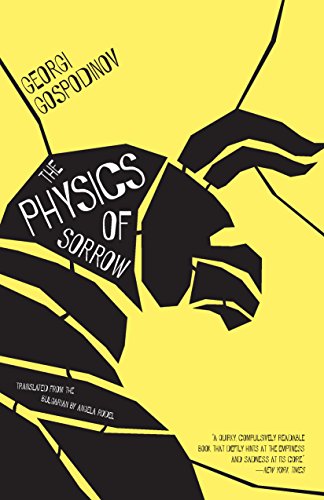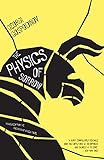Georgi Gospodinov isn’t just the first Bulgarian writer to win the coveted International Booker Prize—he’s the first to even be nominated. Gospodinov’s prize-winning novel Time Shelter, translated by Angela Rodel, imagines a “clinic for the past” in which different floors reproduce different decades in minute detail, allowing patients with Alzheimer’s to revisit the past. Speaking over Zoom from London, where the pair had received the award in a ceremony hours before, Gospodinov and Rodel were thrilled by the recognition.
“Just to win the International Booker Prize is something unthinkable, it’s huge—it doesn’t matter what kind of writer you are, what literature you’re from,” says Gospodinov, with Rodel translating. “What was really important was that this was the first Bulgarian book ever even nominated on the longlist, because I’ve always thought that literature from small languages has the right to talk about the big questions, the big issues.” After the novel was longlisted, then shortlisted, Gospodinov says, he received “so much encouragement from writers in the region—not just Bulgaria but Serbia, Greece, Romania—because they too are writing in relatively small languages.”
One of the “big issues” that all of Gospodinov’s work, and particularly Time Shelter, deals with is the past—namely “the dangers of the past, and the danger that comes with nostalgia for the past.” The impetus for this latest novel were the events of 2016, “a time when there was a glitch in time, and things really shifted.” Since the Russian invasion of Ukraine, his inquiry into nostalgia has grown all the more urgent: “This war is a war for the past,” he says. In his experience, Eastern European writers in particular “understand very quickly this obsession that dictators have with the past—because every war brings the world back into the past.”
Overseas, the invasion has prompted a renewed interest in Eastern European literature. “With the onset of the war in Ukraine, the center of Europe has shifted,” Gospodinov notes. “We usually think of the center of Europe being Paris or Berlin, but it really has shifted to the east. At the center of Europe there is a wound, and now the pain is in the east—it’s in Ukraine.”
“I think Eastern European literature is extremely important now,” adds Rodel. “We see that this is an existential struggle for what kind of Europe we want to live in, and we need to listen to the voices of the people who are having this experience firsthand.”

Rodel’s own path to Bulgarian literature was unexpected and unconventional. As an undergrad at Yale University, she studied Russian literature and was part of the Yale Slavic Chorus. It was there that she fell in love with Bulgarian music, eventually going to Bulgaria to study singing. In order to better sing in Bulgarian, she decided to learn the language, and soon found herself rubbing shoulders with the vibrant literary circles in Sofia.
She quickly realized that “there weren’t very many people who were native speakers of English that spoke Bulgarian,” and so began trying her hand at literary translation, translating a friend’s poem here, a friend’s story there. She didn’t just love it—she felt called to do it. “There was an absolute need,” she says. “There was not really that many people that were doing it, and I felt like I had a calling.”
Rodel and Gospodinov have worked together for some time: she translated his previous book, the 2011 novel The Physics of Sorrow (Open Letter), as well as several of his short stories and an opera libretto. “I was, like all of Bulgaria, eagerly awaiting his new book,” she says of Time Shelter, which was originally published in 2020.
As winners, Gospodinov and Rodel share the Prize’s £50,000 purse—and the limelight. “What’s so unique about the Booker International Prize is that it elevates the translator so that we’re sort of on par as equals with the author,” Rodel says. “It’s really trying to continue this idea that we need to be recognized for the role that we play in making international literature possible.”
As for Gospodinov, he appreciates that the Booker celebrates nuance, artistry, and complexity in the literature it recognizes. To him, the award is “not just a recognition of the importance of the themes in Time Shelter but also of the style, the poetry, the complexity of the book—because it is a complex book.” He finds the Award’s mission to be especially important “in this time of reduction, especially in the media, when everything’s reduced to the simplest message.”
“We shouldn’t give in,” he says. “We want to continue reading complex literature.”










